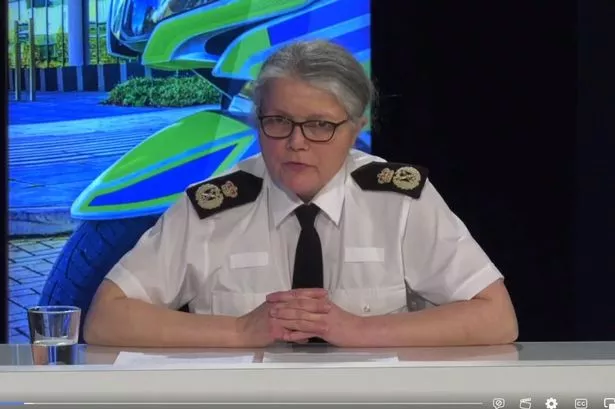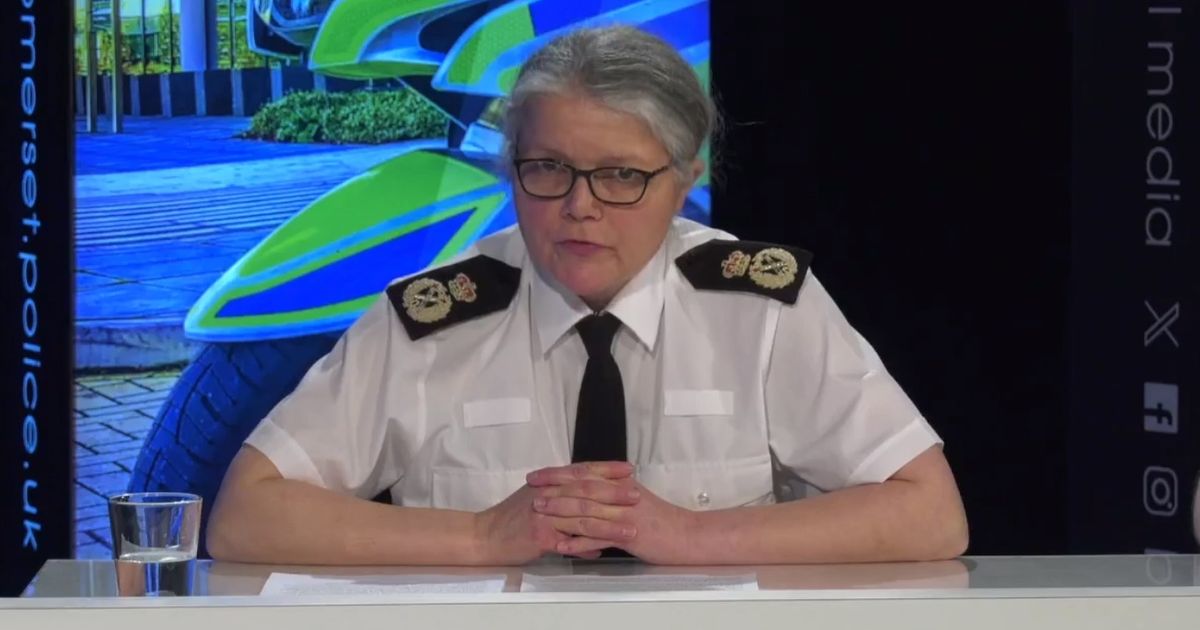“We never give up on these cases” Avon and Somerset Chief Constable Sarah Crew(Image: Avon & Somerset PCC)
Avon and Somerset Chief Constable Sarah Crew(Image: Avon & Somerset PCC)
The chief constable of Avon and Somerset Police has denied a link between a spate of young men going missing in Bristol. Sarah Crew said the police had no evidence to suggest a link between recent missing person cases, but were “keeping an open mind”.
Last year over 4,700 people went missing in Avon and Somerset, on average 13 a day. Most people who go missing are later found, and 85 per cent in the area are found within 48 hours. In Avon and Somerset, there are 48 outstanding missing person cases, dating back to 1965.
The chief constable faced questions on how the police investigate people who go missing, during the monthly Police Question Time session. Clare Moody, the police and crime commissioner, told her that the police have more to do to improve public trust in the area.
Ms Crew said: “There’s no information, intelligence or evidence to suggest a link between these cases. But we keep an open mind and an objective mindset. So if any information came forward that suggested there was a link, we would absolutely make it. But at the moment we’re satisfied that we can’t make a link between those cases.
“In the last 12 months we’ve seen a 16 per cent reduction. But we do have a trend of repeat missing people. Thirty per cent of the people reported missing have been reported missing before. With children, that rises to 43 per cent.”
Hospitals and children’s homes are where the majority of people tend to go missing from. Over the last 12 months, 63 per cent of the people who went missing were adults. Officers assess each case for how much risk there is to the person concerned, to plan their level of response.
In high risk cases, a detective inspector will lead the investigation. Particularly complex or prolonged cases will be reviewed by a senior detective, acting as a “fresh pair of eyes”.
Ms Crew added: “For some cases, we’ll even have a gold group, chaired by a chief officer, to make sure that we’re overseeing not just the investigative response, but the support to families and the communications, so that we can get maximum public engagement into the search.”
The most notable case in Bristol recently was Jack O’Sullivan, who went missing just over a year ago and has not been found. However the chief constable and commissioner didn’t reference individual cases during the Question Time session.
Ms Moody said: “I receive a lot of contact from the public about this. For all of us, the thought of a loved one going missing is something that we dread, and for those who experience this, the impact is devastating. A lot of young men have gone missing from Avon and Somerset recently.
“It’s clear from the number of questions we’ve had on this area that there is a lot of interest in the investigative processes around missing people. There is more to be done to raise the levels of trust that people have in the police response in this area.”
CCTV is considered from the outset of an investigation. Sometimes thousands of hours of footage can be gathered, to help in inquiries. But limited resources mean that officers don’t trawl over “thousands and thousands of hours”, when they are following other inquiries instead.
There are 48 people who have been missing for over 28 days. Some of these people are thought to be immigrants overstaying their visa. Twenty-seven of the cases date from before the year 2000, with the oldest one dating back to 1965. There are eight cases from 2020 onwards, of which half are thought to be immigrants who don’t want to be found as their visa has expired.
Sometimes investigations into missing people are wound down. When officers have exhausted all avenues, a senior detective will decide to send the case to a different team, which will carry out a review either every year or whenever new information appears.
Ms Crew said: “When we’ve completed all the sensible, credible, reasonable and available lines of inquiry — when we’ve followed up everything and we’ve got nothing else to go on — when a senior detective is satisfied we’ve done those inquiries to the fullest extent, then that case will be sent to our major crime and statutory review team.
“They will ensure those cases are reviewed annually or in the event of a new piece of information or evidence comes to light. They will also take responsibility for making sure that families are communicated with and have a point of contact. So you may see appeals for people that have been long-term missing. That’ll be our major crime team doing a review.
“So while we may get to the end of what is an active inquiry, we never give up on these cases. We go back to them and review them.”
